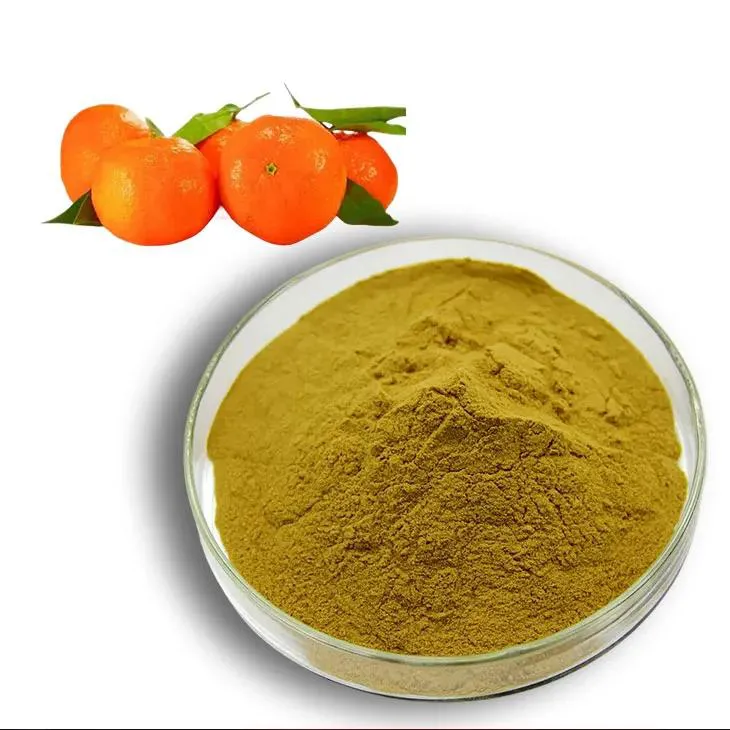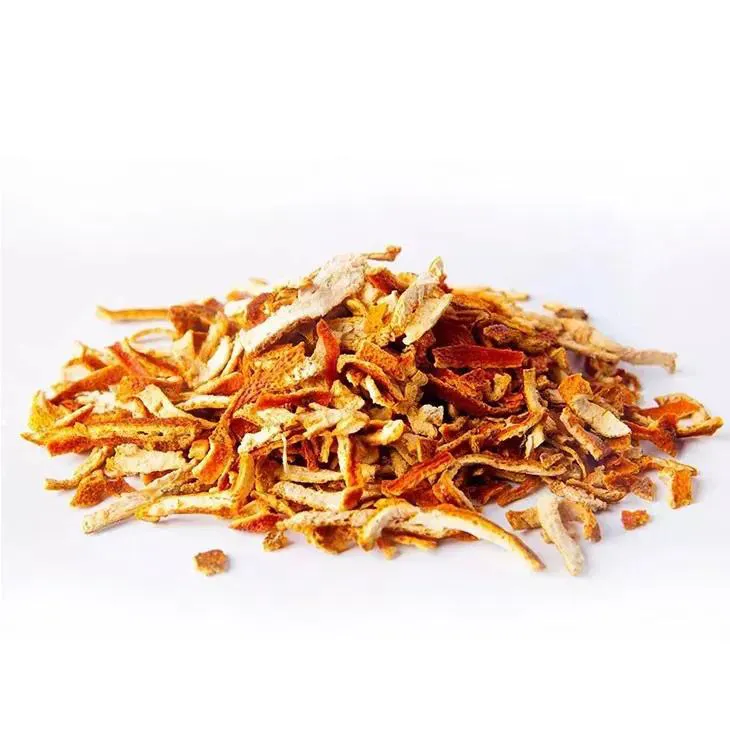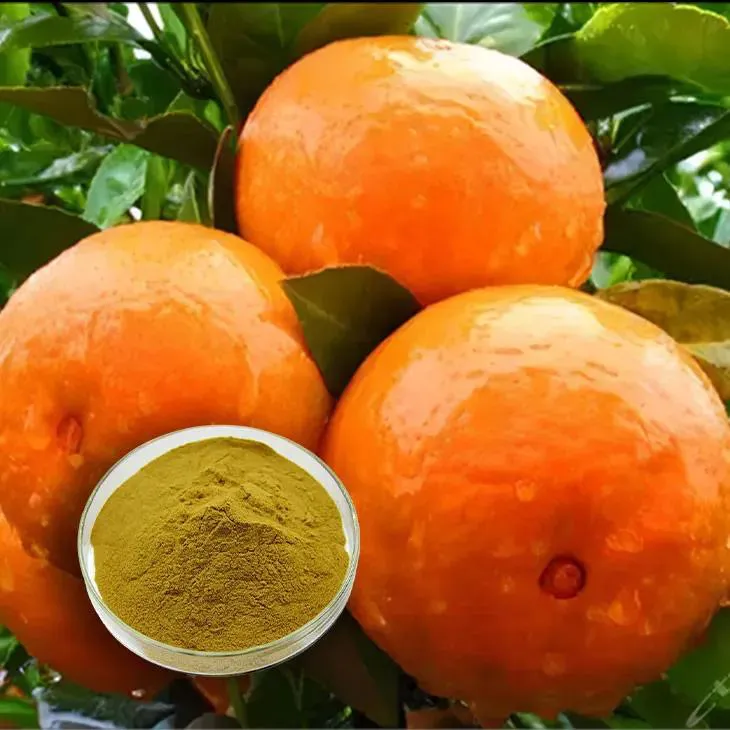- 0086-571-85302990
- sales@greenskybio.com
Citrus Bioflavonoids: Benefits and Consumption Guide
2024-11-12

1. Introduction to Citrus Bioflavonoids
Citrus fruits are not only delicious but also rich in bioflavonoids. Bioflavonoids are a class of plant - based compounds that play an important role in the health of citrus fruits themselves as well as in providing numerous benefits to human health when consumed. These substances are often found in the peel, pulp, and white pith of citrus fruits such as oranges, lemons, grapefruits, and limes.
There are several types of citrus bioflavonoids, including Hesperidin, naringenin, and Quercetin. Each type has its own unique chemical structure and properties, but together they contribute to the overall health - promoting effects associated with citrus consumption.

2. Health Benefits of Citrus Bioflavonoids
2.1 Immune System Enhancement
Citrus bioflavonoids have been shown to boost the immune system. They help in the production and function of white blood cells, which are the body's first line of defense against pathogens. For example, Hesperidin can modulate the immune response by influencing the activity of immune cells such as macrophages and lymphocytes. By enhancing the immune system, citrus bioflavonoids can help the body fight off infections more effectively, reducing the frequency and severity of colds, flu, and other common illnesses.
2.2 Anti - Inflammatory Properties
Chronic inflammation is associated with many diseases, including heart disease, diabetes, and certain cancers. Citrus bioflavonoids possess anti - inflammatory properties. They can inhibit the production of inflammatory mediators such as cytokines and prostaglandins. Naringenin, for instance, has been found to reduce inflammation in various tissues in the body. This anti - inflammatory effect can help prevent the development of chronic diseases and also alleviate symptoms in individuals already suffering from inflammatory conditions.
2.3 Cardiovascular Health
These bioflavonoids are beneficial for the heart and blood vessels. They can help lower blood pressure by relaxing blood vessels. Some citrus bioflavonoids also have the ability to reduce cholesterol levels, particularly LDL ( "bad" cholesterol). For example, Hesperidin has been shown to improve lipid profiles and reduce the risk of atherosclerosis. Additionally, they can improve blood circulation, which is crucial for delivering oxygen and nutrients to all parts of the body and removing waste products.
2.4 Antioxidant Activity
Citrus bioflavonoids are powerful antioxidants. They can neutralize free radicals, which are unstable molecules that can damage cells and DNA. Free radicals are produced during normal metabolic processes as well as due to environmental factors such as pollution and UV radiation. By scavenging free radicals, citrus bioflavonoids help protect cells from oxidative stress, which is linked to aging, cancer, and various degenerative diseases. Quercetin, one of the citrus bioflavonoids, is known for its high antioxidant capacity.
2.5 Cancer Prevention
While more research is needed, there is evidence to suggest that citrus bioflavonoids may play a role in cancer prevention. Their antioxidant and anti - inflammatory properties may help prevent the initiation and progression of cancer cells. Some studies have shown that certain bioflavonoids can induce apoptosis ( programmed cell death) in cancer cells, while others can inhibit angiogenesis ( the formation of new blood vessels that tumors need to grow). However, it should be noted that citrus bioflavonoids are not a substitute for medical treatment in cancer patients.

3. Consumption of Citrus Bioflavonoids
3.1 Eating Citrus Fruits
The simplest way to consume citrus bioflavonoids is by eating whole citrus fruits. This allows you to obtain a variety of bioflavonoids along with other nutrients such as vitamin C, fiber, and minerals.
- Oranges: They are rich in hesperidin. One medium - sized orange can provide a significant amount of bioflavonoids.
- Lemons: Lemons contain naringenin and other bioflavonoids. You can add lemon slices to water or use lemon juice in cooking and salad dressings.
- Grapefruits: These are a good source of bioflavonoids and also offer other health benefits. However, grapefruit can interact with certain medications, so it's important to check with your doctor if you are on medication.
- Limes: Limes also contain bioflavonoids and can be used in a similar way to lemons in cooking and beverages.
3.2 Citrus Juice
Citrus juice is another option for consuming bioflavonoids. However, it's important to note that some commercial juices may be processed, which can reduce the bioflavonoid content.
- Fresh - squeezed juice: This is the best option as it retains most of the bioflavonoids. But it should be consumed soon after preparation as the bioflavonoids can degrade over time.
- 100% pure, unpasteurized citrus juice: This is also a good choice as it has not been heat - treated, which can damage bioflavonoids. However, unpasteurized juices may carry a risk of foodborne illness, so proper handling and storage are essential.
3.3 Citrus - based Supplements
If it is difficult to obtain enough bioflavonoids from diet alone, citrus - based supplements are available.
- Types of supplements: There are various forms of citrus bioflavonoid supplements, including capsules, tablets, and powders. Some supplements may contain a single bioflavonoid, such as hesperidin, while others may be a blend of multiple bioflavonoids.
- Quality and safety: When choosing a supplement, it's important to look for a reputable brand. Check for third - party testing and certifications to ensure the quality and purity of the product. Also, consult your doctor before starting any new supplement, especially if you have underlying health conditions or are taking medications.

4. Considerations for Consumption
4.1 Interaction with Medications
As mentioned earlier, grapefruit can interact with certain medications. This is because some components in grapefruit can affect the way the body metabolizes drugs. For example, it can increase the levels of some medications in the blood, which may lead to adverse effects. Therefore, if you are taking medications such as statins, calcium channel blockers, or immunosuppressants, it's crucial to consult your doctor before consuming grapefruit or grapefruit - based products.
4.2 Allergies
Some people may be allergic to citrus fruits. Allergic reactions can range from mild symptoms such as itching and hives to more severe reactions like difficulty breathing and anaphylaxis. If you suspect an allergy to citrus fruits, it's important to seek medical advice. Avoid consuming citrus bioflavonoids if you have a known allergy to citrus.
4.3 Dosage
The optimal dosage of citrus bioflavonoids can vary depending on factors such as age, health status, and the specific bioflavonoid. There is no one - size - fits - all recommendation. In general, when consuming citrus fruits, there is no need to worry about excessive intake as long as it is part of a balanced diet. However, when taking supplements, it's important to follow the manufacturer's instructions and consult a doctor to determine the appropriate dosage.
5. Conclusion
Citrus bioflavonoids offer a wide range of health benefits, from enhancing immunity to protecting against chronic diseases. By consuming citrus fruits, juices, or supplements in the appropriate way, individuals can take advantage of these beneficial compounds. However, it's important to be aware of potential interactions with medications, allergies, and proper dosage to ensure safe and effective consumption.
FAQ:
What are citrus bioflavonoids?
Citrus bioflavonoids are a group of natural compounds found in citrus fruits such as oranges, lemons, and grapefruits. They are known for their antioxidant properties and play various roles in maintaining human health.
How do citrus bioflavonoids enhance immunity?
Citrus bioflavonoids can enhance immunity by stimulating the production of white blood cells, which are crucial for fighting off infections. They also have antioxidant effects that help protect cells from damage, enabling the immune system to function better.
What chronic diseases can citrus bioflavonoids protect against?
Citrus bioflavonoids may protect against chronic diseases such as heart disease, cancer, and diabetes. For example, they can help reduce inflammation in the body, which is a common factor in many chronic diseases. They also have antioxidant properties that can prevent oxidative damage to cells, which is associated with the development of cancer and other diseases.
How can we consume citrus bioflavonoids?
One way to consume citrus bioflavonoids is by eating citrus fruits directly. You can also drink fresh - squeezed citrus juices. Additionally, some dietary supplements are available in the market that contain citrus bioflavonoids. However, it is important to consult a healthcare provider before starting any supplement.
Are there any side effects of consuming citrus bioflavonoids?
When consumed in moderation through natural food sources like citrus fruits, citrus bioflavonoids generally have no side effects. However, if taken in excessive amounts through supplements, it may cause some adverse effects such as stomach upset or allergic reactions in some individuals.
Related literature
- Citrus Bioflavonoids: Chemistry, Biological Activity, and Dietary Sources"
- "The Role of Citrus Bioflavonoids in Human Health: A Review"
- "Bioflavonoids from Citrus Fruits: Health Benefits and Applications"
- ▶ Hesperidin
- ▶ Citrus Bioflavonoids
- ▶ Plant Extract
- ▶ lycopene
- ▶ Diosmin
- ▶ Grape seed extract
- ▶ Sea buckthorn Juice Powder
- ▶ Fruit Juice Powder
- ▶ Hops Extract
- ▶ Artichoke Extract
- ▶ Mushroom extract
- ▶ Astaxanthin
- ▶ Green Tea Extract
- ▶ Curcumin
- ▶ Horse Chestnut Extract
- ▶ Other Product
- ▶ Boswellia Serrata Extract
- ▶ Resveratrol
- ▶ Marigold Extract
- ▶ Grape Leaf Extract
- ▶ New Product
- ▶ Aminolevulinic acid
- ▶ Cranberry Extract
- ▶ Red Yeast Rice
- ▶ Red Wine Extract
-
Lotus leaf extract
2024-11-12
-
Soy Extract
2024-11-12
-
Baicalin
2024-11-12
-
Garcinia Cambogia Extract
2024-11-12
-
Senna Leaf Extract
2024-11-12
-
Curcuma Longa Extract
2024-11-12
-
White Peony Extract
2024-11-12
-
Tormentil Extract
2024-11-12
-
Horse Chestnut Extract
2024-11-12
-
Bayberry Extract
2024-11-12





















